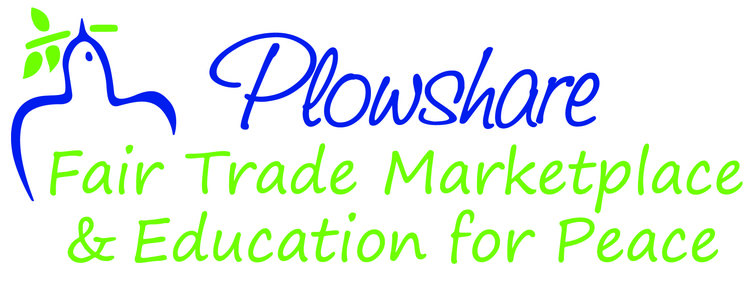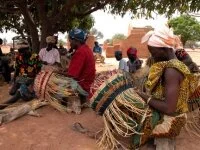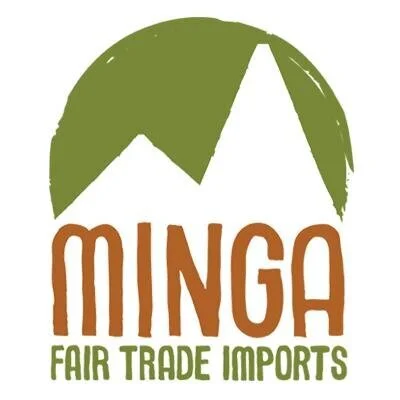Papillon Marketplace
Recycled Metal Art, Paper Bead Art & Ceramics from Haiti
About Us
Papillon Marketplace is a fair-trade, socially conscious lifestyle brand dedicated to supporting at-risk mothers and fathers with full-time artisan jobs in Haiti. Papillon’s mission of orphan prevention and family preservation through job creation has proven itself to be a viable solution for the current poverty orphan crisis affecting many developing nations. Papillon founder, Shelley Jean was featured in the Netflix documentary, Poverty Inc which showcased the positive impact of Papillon's methodology and approach to economic and social reform in Haiti.
More Than "Just A Job"
Wages & Benefits
Employees receive a living wage, usually 3X the minimum wage + medical & social benefits
Training & Education
Job skills training, language & literacy development, computer & software training
Work Environment
Our work environment is creative and family-friendly, including on-site child care. Papillon provides hope and dignity with employment rather than a hand out. The skills and training that each staff member receives, provides the foundation for a sustainable future. A future that includes taking care of their children and providing for their families. These jobs present an unprecedented opportunity for many men women who have never had an education and cannot read or write their names. Papillon also works with deportees struggling to create new lives for themselves. This chance to "start over" is a rarity and exhibits that a little help goes a long way.
Our Holistic Approach
Training
We develop new skills in our artisans to help them create products that are relevant for North American and European markets. Most artisans have little to no experience in the creative field before working for Papillon Enterprises. Job skills training will give Haitian artisans a lifelong advantage no matter where they are.
DESIGN
Haitian culture is blessed with an unsurpassed creativity. Through our company, we encourage and promote artisans to be experimental, exploratory, and expressive in their work. This gives greater satisfaction for our employees and allows us to have the most unique and cutting edge artisan goods in Port au Prince.
VARIETY
Our artisans work with recycled paper to make necklaces, bracelets, earrings, Christmas ornaments and more. We use indigenous clay to make ceramic beads and crafts that are unique to our artisan guild. We are eco-friendly and use primarily recycled goods in most of our craft. Our ever-expanding product lines include recycled paper journals, bags, purses, home decor, children’s clothing and many other small artisan goods. We are constantly pushing back the horizons of our skills to continue blazing trails on the frontier of the emerging Haitian market.
AWARENESS
Papillon’s artisan goods are being sought after worldwide. Our products have been purchased and celebrated by prestigious clientele such as Donna Karan, Kim Kardashian, Maria Bello, Patricia Arquette, Olivia Wilde, Oprah Winfrey and Bill Clinton. These connections and a blossoming social media network have done much to promote and sell Haitian goods. We are currently developing new markets in Europe and Asia.
LOCAL
As much as is possible, we source all of our supplies locally. Varnish, glue, paper, unprocessed clay, and raw metals are all purchased locally in order to stimulate the Haitian economy further and create more jobs. What we cannot buy locally, we import solely for the sake of exporting.
African Market Baskets
Hand Woven Market Baskets
Bolgatanga is the largest town in the Upper East region of Ghana, about 20 miles South of the Burkina Faso border and very close to the edge of the Sahara Desert. The sun roasts the villages of northern Ghana year round, except during the 2-3 months of rainy season when it rains, rains, rains. The people living there are traditionally farmers and herdsman, but with its variable climate farming is very difficult. Local women supplement the family income by weaving the baskets we refer to as Bolga baskets which are hand-woven using locally-grown straw.
Basket weaving has helped bring much needed income to the villages surrounding Bolgatanga. The traditional skill which has been handed down from generation to generation provides employment to approximately 10,000 people, mostly women. An average of two baskets a week can be woven by a woman who also has household chores, firewood collection, water collection, washing and the care of her children to tend to each day.
African Market Baskets™ founder and CEO, Steve Karowe has been importing from Africa for 25 years. For the past 12 years he has worked directly with artisans in Bolgatanga and helps support over 1,000 weavers and their families.
“One of the greatest parts of importing from Africa is seeing the positive impact we have on artisans and their families,” Steve says.
Steve visits Africa regularly to meet with the weavers and hold town hall meetings where he solicits feedback and listens to concerns and needs. He works with each weaver’s group to ensure that products are being made to the highest quality and design standards. And, he oversees Every Basket Helps™ goodwill projects with the goal of reducing poverty in the region.
Every Basket Helps
African Market Baskets™ founder and CEO, Steve Karowe formed Every Basket Helps™, a non-profit organization created to help manage humanitarian projects in the villages of Ghana. African Market Baskets™ donates 10% of its profits to Every Basket Helps™.
Steve travels to Africa to meet with the weavers regularly and to oversee Every Basket Helps™ projects which include:
Providing basic school supplies for the weavers’ children annually
Organizing and funding health care for the weavers and their families annually
Funding and building a community weaving center that serves two villages and over 400 weavers (2009)
Thanks to all of you who help support the weavers by buying baskets from African Market Baskets™.
Minga Fair Trade Imports
Tagua Carvings & Jewelry
Minga Fair Trade Imports was founded by Christopher Keefe in 1997. It began during his time living in Ecuador from 1995-2004 with the goal of improving education in Ecuador, increasing public knowledge of fair trade in the United States, and supporting the concept of a sharing wage. This provides the artisan with enough money to pay for essential expenses, and enough to reinvest in their families and their communities. The business began with a humble start, working out of a friend's basement and has since grown to serve over 500 clients all over the country. Minga Fair Trade Imports works with retailers in more than 20 states, and many master artisans in Ecuador, Peru, Bolivia, and Colombia.
One of the many products and materials that Minga features is Tagua. Tagua is also known as vegetable ivory since the dried and polished seeds are very similar to elephant ivory in appearance. The purchase of Tagua Seeds is an ecological incentive for preserving the rain forests. Tagua is a natural resource that can generate five times the income to an artisan than banana plantations or cattle ranches.
Andrés and Juanita were both born in 1964 and have been married for 30 years. They have two children, Mateo and Emily, both in elementary school. Andrés parents worked in tagua in Riobamba, where he was born. In 1985 when Juanita married him, his parents taught her the craft of working in tagua. She learned how to create designs with tagua beads and also to paint them. They worked together as a family making tagua jewelry and selling it for about a year. Then Andrés father fell sick with diabetes.
For more than five years they have been working with Minga making beautiful jewelry with tagua, coconut, acaí and pambil seeds. Andrés learned his trade from his parents who also worked with tagua. They presently work with five families in Quito and six families on the coast who supply them with tagua and other materials. Andrés and Juanita then design and assemble the jewelry in their home.
Juanita says, “my goal was to buy a house,” which they have now done through the steady business and fair trade wages from Minga. In the future, she is looking to improve their house by building new bedrooms for their children.
A goal Andrés and Juanita are striving for now, is to raise the quality of the designs to include materials which have a higher perceived value, such as alpaca and silver, and incorporating them with tagua beads. He would like to use the tagua in such a way that it incorporates semi-precious stones or other enhancements. He would like to make fine jewelry more than costume jewelry. One drawback with this is the difficulty of buying such additions in Ecuador. They are not often made here, (example, hypoallergenic earring hooks, and high-quality metal beads) and importing small quantities is too expensive.

















